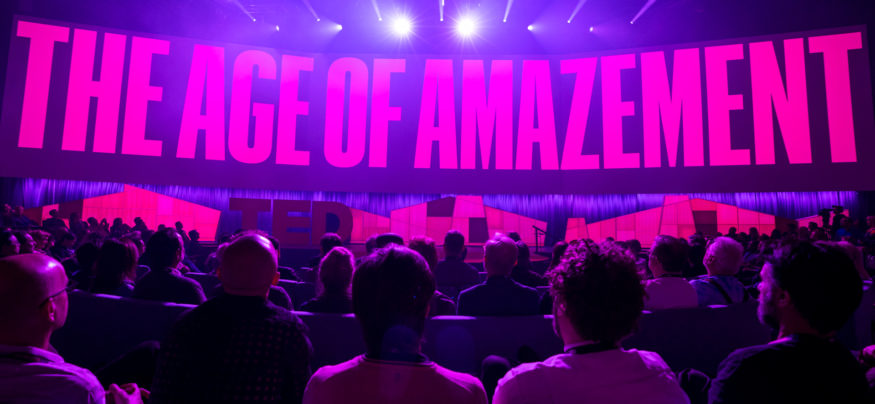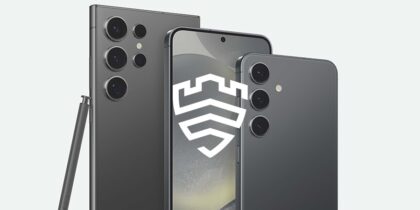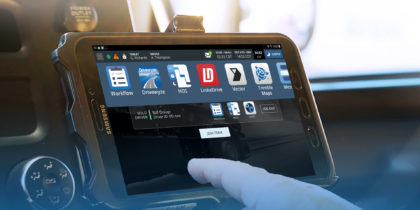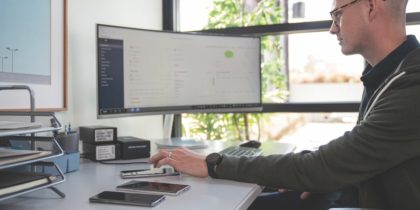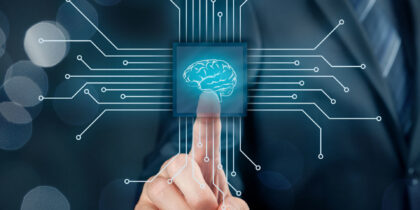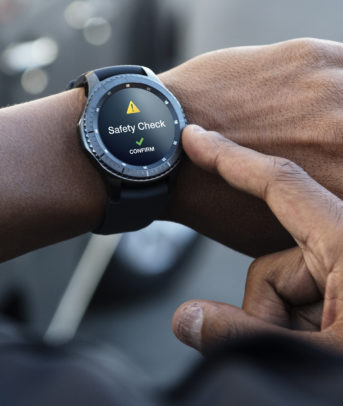Born out of the convergence of technologies such as 5G networks, the Internet of Things and AI, the Next Mobile Economy is here. The limitless opportunities and problem solving potential of this digital transformation were the focus of Samsung’s discussions with global influencers and attendees at TED2018 .
Business decision makers looking to lead in the Next Mobile Economy must imagine the possibilities, challenge assumptions about the capabilities of current and future technologies, and account for obstacles along the path to digital transformation and enterprise mobility. How companies adapt their thinking to this new era of business transformation requires a complete reimagining of how we all work.
Envision the possibilities of the Next Mobile Economy
The idea that we are all on the bend of an exponential curve in The Age of Amazement was central to TED2018. It is this acceleration of technology that underpins the promise of the Next Mobile Economy as an era of significant disruption and transformation – driven by converging technologies – to businesses across all sectors.
Now is a period of time that will be defined by breakthrough solutions that put an end to many of the issues and problems that challenge organizations today. Some of the scenarios discussed during TED2018 illustrated how technologies such as 5G, the Internet of Things, Cloud Computing, AI, AR/VR and Voice Command are finally open, collaborative and fast enough to create right-time experiences.
These right-time experiences, as defined by Maribel Lopez, a technology industry analyst, are driven by mobility, big data and analytics to enhance business processes, improve margins through better insight and transform customer service for organizations. And what’s encouraging is that real world evidence of these possibilities are already surfacing for some businesses, as Lopez listed:
- The concept of smart farms, constructed in proximity to distribution hubs is beginning to take shape;
- Drones delivering medicines or supplies to rural communities or disaster areas is a thing;
- Ordering food via facial recognition is being tested;
- The many applications of VR, ranging from training a specialized workforce to applications in healthcare such as pain management are improving.
The convergence of these different technologies sparks ideas for business applications in the Next Mobile Economy. The prospect of 5G and VR coming together opens the door for innovation in training procedures, while the duo of IoT and AI will lead to more efficient information sharing and communications.
The truth is, we do not know exactly where technology will lead us, so we must be open to a great range of possibilities and challenge the status quo within the businesses we manage though digital transformation. What is known, and proven by thousands of defunct companies already, is that complacency is not an option in the Next Mobile Economy.
So just what is possible for your business, your workforce, your customers in the Next Mobile Economy? What technology combinations represent clear opportunity? It’s an important question at a critical time. Business decision makers should make the time to envision these possibilities as they map the course of business over the next 3 to 5 years.
Challenge Assumptions
If there’s one thing that the annual TED Summit is sure to do, it is to challenge the way in which we think about particular ideas, issues or organizations. For example, many businesses rely on the idea that closed systems are best. However, coming out of TED, it seems more evident that the world needs to become more open – and businesses and people who cling to closed systems, attitudes and ways of doing business risk missing out on the opportunities that “open” brings. A new kind of partnership is needed that relinquishes the closed corporate mindset and opens up to the possibility of The Next Mobile Economy.
The same goes for assumptions about business partnerships. Organizations must identify an establishment of collaborative technology partnerships to aid a seamless transition to the Next Mobile Economy, but these may not be your industry’s traditional business partners. New possibilities will arise as businesses look to collaborate with unconventional partners in an open system to solve problems in today’s world.
The Next Mobile Economy offers tremendous opportunity, especially in light of the serious risk of disruption facing entire industries. 83% of business leaders agree their companies should focus on future-proofing operations by increasing openness and agility. What are some areas of your business that could benefit from fresh perspective? Identify and challenge your assumptions about your customers, your workforce and your business model.
Accounting for Obstacles and Restrictions
In addition to showcasing “amazing” progress in technology, entertainment and design, TED also serves as a forum for some of the world’s brightest minds to address the questions and risks that progress and change prompts.
Throughout TED2018, the topic of data and information management was woven into nearly every TED Talk. From government to finance, retail, public safety and transportation, the optimism of possibilities was always anchored by concerns about identity, privacy and security for individuals and businesses alike. As stated by Lopez, “The question of our age just might be, ‘How do we manage our data?’”
The observation has merit considering that approximately 90% of the world’s data was generated over the last two years. And, the proliferation of mobile devices and connected “things” in the coming years will create an exponential influx of information to all systems.
Underneath the umbrella of data and information management are concerns about privacy and trust. Two primary issues were highlighted in TED Talks:
1. The data paradigm of personalization and anonymity
People are seeking out, and coming to expect, more personalized experiences from companies, particularly within retail and financial industries. Many consumers, however, are not acutely aware of the nature of the data exchange necessary for businesses to tailor communications, products or services to their preferences – though current events concerning data privacy and social media, in particular, are bringing this conversation into the mainstream.
2. Data requirements and restrictions
Data is essential if we hope for technology to solve today’s problems. Nonetheless, businesses will be forced to consider the protection and security of customer data as greater restrictions are put in place – The General Data Protection Regulation (GDPR), with implications extending beyond the EU, is a prime example of this. What information is necessary, and what information is optional? What choice will individuals have, and what restrictions will companies face in the years ahead?
Nick Rea, VP of Mobility Innovations with Samsung, imagines the passive flow of data through ubiquitous mobile devices as part of future data management systems. To ensure data security and privacy, perhaps there will also be data authorization levels – some required, some optional – to give customers more control over the sharing of personal data. Or even data that times-out after a set period of time – a day, a week a year – depending on the application.
In a connected world where “things” communicate with “things,” each will need to know what information is required of the other. Great progress is being made on this front, but scaling this globally represents a significant obstacle if the connected world is to be safe and seamless.
Another barrier is the infrastructure requirements that are an inevitable component of the Next Mobile Economy, especially for Internet of Things and 5G. How will communities decide when, where and how infrastructure options will not only be built, but maintained? The promise of a connected world with 5G speeds comes at a cost that will initially be driven by market demand. A potential solution could be disrupting the traditional pricing model set by Internet providers and mobile carriers.
Is your business data secure? And how are you managing the data that your company collects from its customers? What data is your company dependent on today that might not be available tomorrow?
Take Action, the Next Mobile Economy is Already Here
Businesses at the forefront of the Next Mobile Economy have already taken steps to embrace a more open, collaborative way of operating. By daring to re-imagine their entire enterprise as mobile-first, the leaders of this transformative era will meet the needs of a changing global consumer landscape and the expectations of tomorrow’s workforce by challenging assumptions. In that sense, the Next Mobile Economy is already here and the time to take action is now.
Download the Workforce Enablement report and learn how to provide the right environment and—crucially—the right technology for your workforce to thrive in the Next Mobile Economy.
